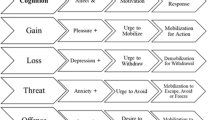Summary
Many schizophrenics are able to go through life without ever breaking down. They remain, however, characteristically vulnerable to all modifications of their more-or-less precarious mental status quo. Should their social or emotional equilibrium be perturbed, they are apt to break down.
In the foregoing discussion of adaptive disability, the authors have described three categories of changes in life situations that are likely to bring about decompensation of a hitherto adequately functioning schizophrenic.
In the first group some well-known noxious changes, such as loss of a loved person, a disease, an accident, were reviewed.
The second category is composed of changes that are usually regarded as beneficial by normal individuals but which may paradoxically precipitate a mental breakdown in schizophrenics and are therefore called “quasi-favorable.” Job promotion, fulfillment of wishes, recovery of a sick relative, or achievement of goals can be a boon to the normal person, but a blow to the schizophrenic.
In the last category the authors describe the hazards of coercive psychiatric treatment, whether psychotherapy or chemotherapy, which can increase the pathological way of life of compensated schizophrenics as their defenses are broken down.
Similar content being viewed by others
References
Bleuler, E.: Dementia Praecox or the Group of Schizophrenias. International Universities Press. New York. 1950.
Laury, G. V.: Le mode de vie schizophrenique. Med et Hygiene 833, July 1968.
Rado, S.: Psychoanalysis of Behavior. Grune and Stratton. New York. 1956.
Bowlby, J.: Mourning, protest, despair, detachment. Int. J. Psycho-An., 42: 1961.
Hall, P.: Clinical aspects of moving as apparent precipitant of psychiatric symptons. J. Psychosom. Res., 10: 59–70, 1966.
Hamilton, J. A.: Post Partum Psychiatric Problems. Mosby. St. Louis. 1962.
Brenner, M. H.: Economic conditions and mental hospitalization J. N. M. D., November 1967.
Friedman, A., and Kaplan, H.: Comprehensive. Textbook of Psychiatry. Section 2.4, p. 87. Williams & Wilkins Company Baltimore. 1967.
Ellul, J.: Reflections on leisure, Reflections III, 4. 1968.
Meerloo, J. A. M.: Patterns of Panic. International Universities Press. New York. 1948.
Cochrane, A. L.: Notes on the psychology of prisoners of war Brit. Med. J., 1: 282–284, 1946.
Ostwald, P.: Life adjustment after severe persecution. Am. J. Psychiat. 124: 10, April 1968.
Meerloo, J. A. M.: Les dangers physique et psychologiques des tranquillisants. Med et Hygiene, 660, Oct. 1964.
Author information
Authors and Affiliations
Additional information
This paper was submitted to theQuarterly on Dec. 18, 1968.
Rights and permissions
About this article
Cite this article
Laury, G., Meerloo, J.A.M. Adaptive disability: Some precipitating factors in schizophrenic decompensation. Psych Quar 43, 319–330 (1969). https://doi.org/10.1007/BF01564249
Issue Date:
DOI: https://doi.org/10.1007/BF01564249




